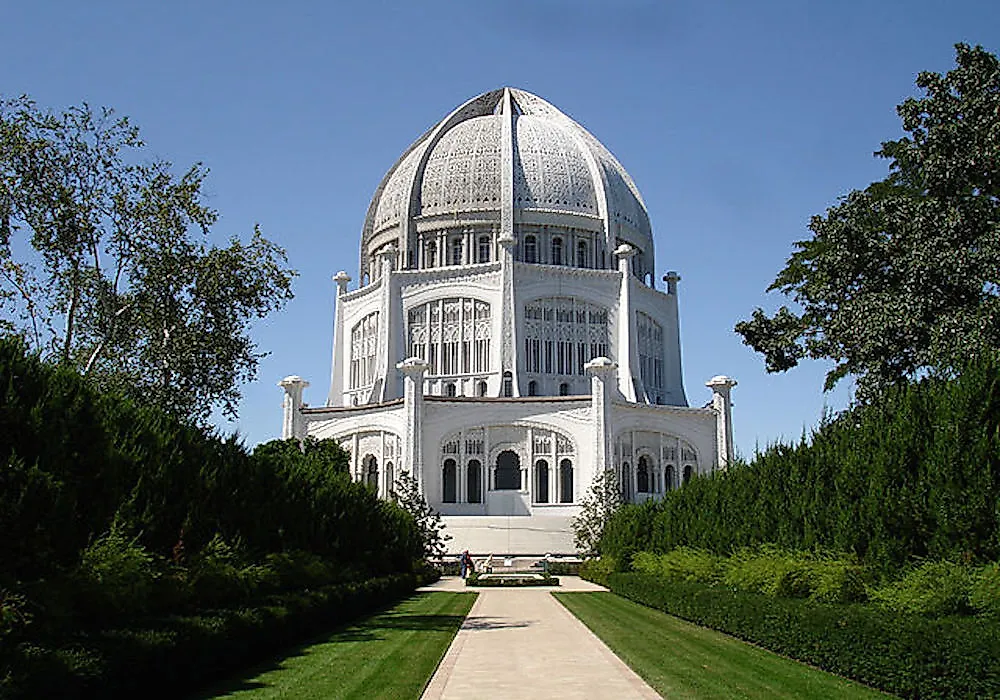Have you ever pondered how a belief system can substantially steer the trajectory of human civilization? The Baha’i Faith offers a mesmerizing lens through which one can examine our collective future. Central to this faith is the concept of the Divine Plan—an intricate framework for building a more equitable and united world. This article delves into the underpinnings of these teachings, revealing how the Baha’i Faith pragmatically engages with contemporary challenges and seamlessly aligns with humanity’s pressing needs.
The Baha’i Faith, founded in the 19th century by Baha’u’llah in Persia, underscores the inherent value of every individual. According to its tenets, humanity is viewed as one single entity. Yet, we face phenomena that threaten this unity: discrimination, environmental degradation, and rampant materialism. So how does the Divine Plan navigate these adversities? The answer lies in the Baha’i principles promoting unity, justice, and the interconnectedness of all life.
The essence of the Divine Plan is primarily captured through the concept of “progressive revelation.” This tenet posits that religious truths evolve, much like a river deepening as it flows. Each Manifestation of God, from Krishna to Muhammad, has unveiled a segment of divine wisdom. Baha’u’llah’s revelation serves as a culmination of this process, synthesizing teachings that address evolving social needs. This fluidity of religious understanding is not merely theoretical; it emphasizes a proactive approach to societal transformation.
Another cornerstone of Baha’i teaching is the principle of unity in diversity. This notion challenges contemporary societal structures that often celebrate division rather than collaboration. In a world increasingly polarized by ideology, how can individuals realistically embody this principle to foster harmony? Baha’is advocate for an inclusive dialogue, encouraging interactions across different cultures and beliefs. Such dialogue transcends mere tolerance; it seeks to cultivate genuine appreciation for diverse perspectives. The potential challenge, then, lies in overcoming ingrained prejudices to fully embrace this diversity, transforming it into a vital source of strength.
The Baha’i Faith places significant emphasis on social justice and the establishment of equitable systems. The concept of the “lesser peace,” which refers to the cessation of armed conflict and the establishment of governmental structures that promote justice, is a prelude to the “greater peace,” a condition of spiritual harmony among all peoples. Achieving this formidable goal requires not only introspection but also communal action. It beckons individuals, regardless of belief systems, to engage actively in alleviating suffering and ensuring equal opportunities for all. Herein lies a remarkable challenge: How do we galvanize enough collective will to initiate and sustain such transformative actions?
Education plays a pivotal role in the Baha’i approach to enacting the Divine Plan. Baha’is believe that education is a universal right, essential for the empowerment of individuals and the advancement of society as a whole. By fostering a culture of learning and literacy, communities cultivate capacities to confront and redirect societal ills. However, the challenge remains: How can societies overcome existing barriers to accessible education, particularly in underserved regions? Innovative solutions that utilize technology and community-based initiatives may provide pathways to rectify this disparity.
Another significant element of Baha’i teachings is the importance of consultation. This practice is not merely a mechanism for discussion; it embodies a spiritual discipline aimed at achieving collective wisdom. When individuals come together in a spirit of mutual respect and open-mindedness, the result transcends individual perspectives and fosters innovative solutions. The challenge lies in creating spaces where such cooperation can flourish. How can communities cultivate an atmosphere of trust that allows for genuine dialogue and the synthesis of ideas?
The Baha’i Faith also emphasizes the necessity of a global perspective, advocating that progress is no longer a localized phenomenon but a worldwide endeavor. Globally, we face issues such as climate change, poverty, and health crises that disregard national borders. In confronting these dilemmas, the Baha’i teachings urge collective responsibility among nations and peoples. With such interconnected challenges, individuals must grapple with an essential question: How can we align local action with global principles? The convergence of localized sustainability efforts with global strategies could herald a new era of environmental stewardship.
A fundamental learning point from Baha’i teachings is understanding that action must be informed by the principles of service and sacrifice. Service to humanity is not a side endeavor but a central tenet of Baha’i life. Individuals are called to contribute to the betterment of their communities, initiating a myriad of grassroots campaigns aimed at social development. However, there exists a dual challenge: How do we balance individual aspirations with the collective needs of society? Striking this equilibrium is paramount in realizing the Divine Plan’s vision.
In summary, the Baha’i Faith’s Divine Plan provides a comprehensive roadmap for addressing contemporary global challenges through the lenses of unity, education, social justice, and global responsibility. As individuals navigate an increasingly complex world, the teachings of Baha’u’llah serve as a guiding beacon, encouraging thoughtful examination, compassionate action, and sustained engagement. The proactive potential of these teachings offers not only hope but also responsibility—an ongoing invitation to contribute to the unfolding narrative of human advancement. In pondering the Divine Plan in action, one must continually ask: How can we, endowed with the light of understanding, actively participate in this noble endeavor? Only through unwavering commitment to these principles can a harmonious, just, and united world be realized.
